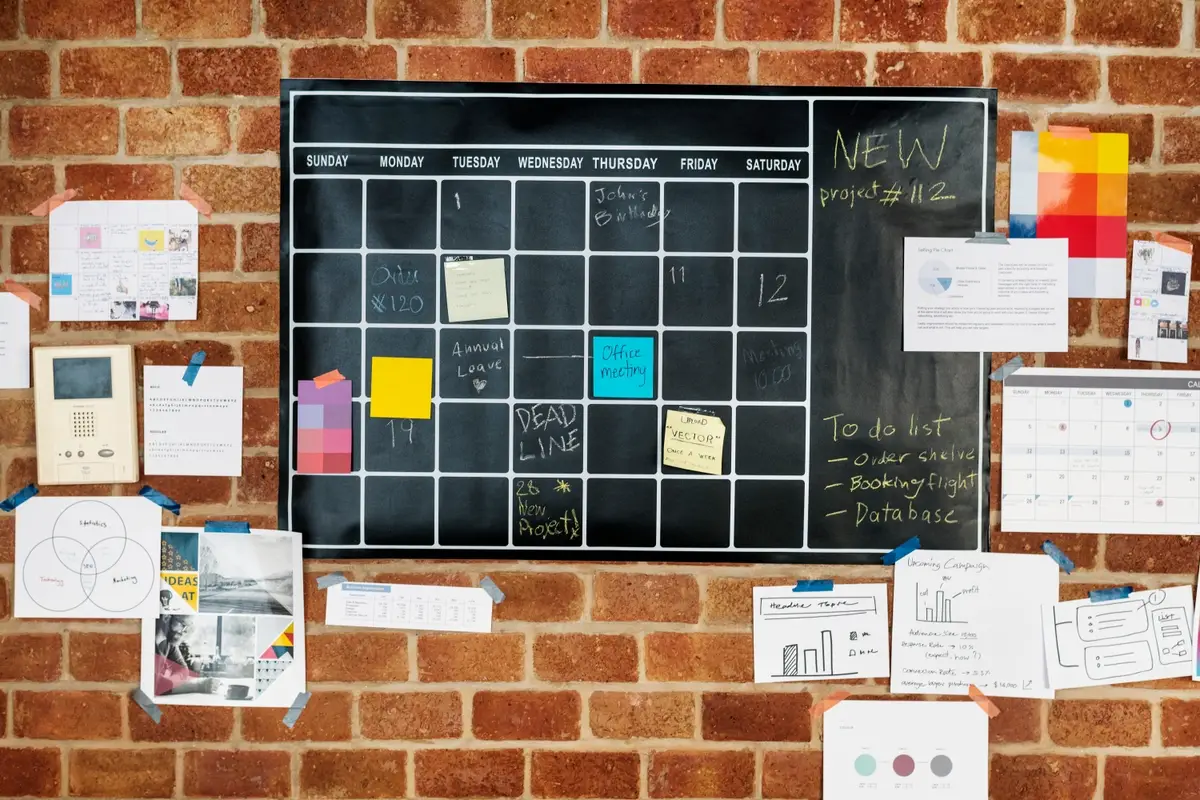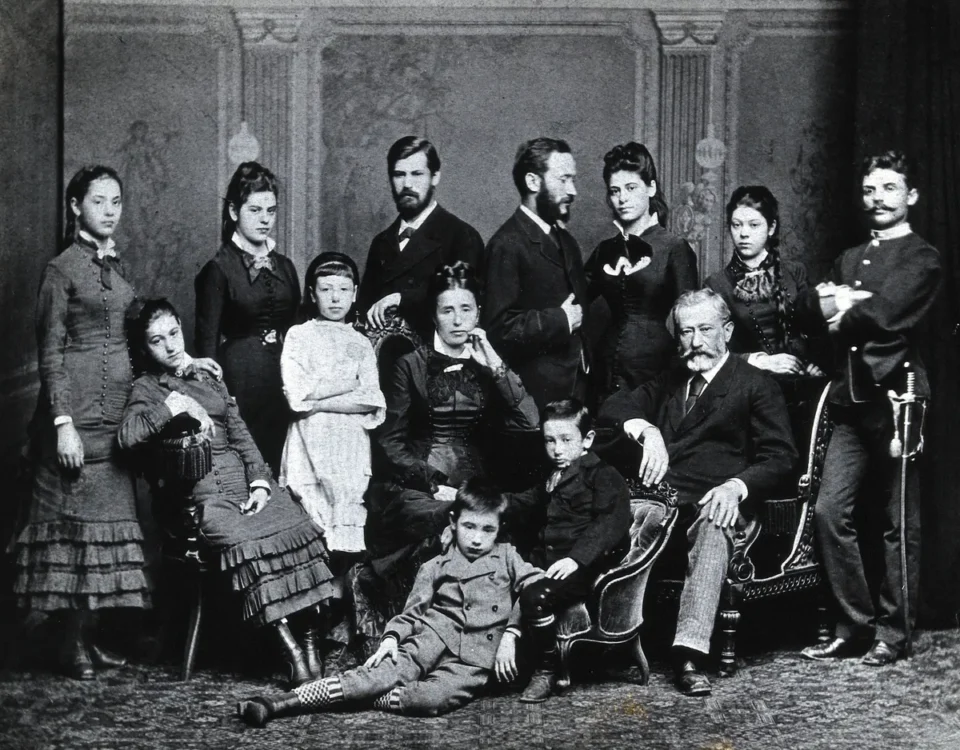
How to Choose a Medical Specialty: Key Factors and Insights for Aspiring Physicians
April 10, 2025
OB/GYN Insights: Navigating Career Challenges and Connecting with Teen Patients
April 11, 2025Summary (TL;DR)
Research common interview questions, practice thoughtful responses with real-life examples, and present yourself professionally. When ranking programs, trust your instincts, consider program size and culture, and seek resident feedback to align with your goals.
Use your free time before residency to achieve personal goals, reconnect with loved ones, learn a new language, establish self-care routines, and handle logistics like housing and paperwork. Starting Step 3 prep early can also ease future stress. Stay organized and confident to thrive in this crucial phase of your medical journey.
The journey to becoming a physician is long and challenging, but few phases are as pivotal as the residency application process. From preparing for interviews to ranking programs and transitioning into training, each step requires careful thought and planning. This comprehensive guide aims to combine insights from multiple perspectives—interview strategies, ranking considerations, and ways to spend your pre-residency time—to help you navigate this critical period with confidence.
Preparing for Residency Interviews: How to Put Your Best Foot Forward
It’s interview season—the most exciting yet nerve-wracking time of the year for many medical graduates. After years of board exams, clinical rotations, and countless hours of dedication, it’s finally time to showcase your hard work to residency programs. However, for some candidates, the pressure can feel overwhelming. To alleviate these nerves, here are several tips to ensure you make a lasting impression during your interviews.
1. Know Some of the Common Questions
If you think you can wing it on interview day, chances are you probably can’t. Sitting in front of program directors and peer residents is an intense experience, especially when so much is at stake. Being prepared is essential. Review commonly asked questions and try to see things from the interviewer’s perspective. Instead of offering simplistic answers, provide examples that demonstrate how you’ve applied your skills in real-life scenarios. For instance, rather than saying:
“I have great leadership and communication skills…”
A more engaging response would be:
“In my clinical years, I’ve participated in multiple events to raise funds for [cause]. Through my leadership and communication skills, I was able to successfully manage my teams, leaving behind a great imprint on our local community.”
Providing concrete examples gives the interviewer a deeper understanding of who you are as a future physician.
2. Practice Your Interview Skills
Many candidates underestimate the importance of practicing their interview skills. Even if you’re top of your class academically, appearing unprofessional or unprepared can significantly hurt your chances. Dress formally, maintain good posture, and pay attention to your communication style. Avoid interrupting the interviewer, keep conversations professional, and listen carefully to what they might be hinting at. For example, if a director asks:
“A recent study made in our hospital shows that asthma is at least twice as likely to develop in autistic children. What do you think of that?”
This question may not just be about your knowledge of asthma—it could also be testing your interest in research. A well-structured answer might look like this:
“Throughout my medical school years, I’ve learned that pediatrics research is forever evolving. I’m not surprised at the rapid breakthrough discoveries we are doing through research. Asthma has been linked to various diseases like nasal polyps, NSAIDs, and even pregnancy. A study like this could help us analyze asthma and autism from a different perspective and perhaps change our future approach in treatment guidelines.”
Program directors are looking for trainable applicants who will grow into competent physicians. They value qualities like friendliness, likability, and passion. Be authentic, bounce off the energy of the interviewer, and let your enthusiasm shine through.
3. Research Programs Thoroughly
If there’s a specific program you’re targeting, make sure you know its history, achievements, publications, work-life balance, and geographic location. Demonstrating your knowledge of the program shows the interviewer that you’re genuinely interested in training there.

4. Show Your Interest in the Specialty
Programs filter out candidates who seem half-hearted about their chosen specialty. Curate your CV to reflect your commitment. Attend workshops, volunteer at specialized hospitals, shadow doctors, and craft a compelling personal statement. These efforts will set you apart from other applicants.
5. Advocate for Yourself
Don’t shy away from promoting yourself! You’re competing against thousands of qualified candidates, and no one will advocate for you harder than you. Highlight your passion for medicine, share your best qualities, and explain why you’d be a valuable addition to their team.
6. Keep Track of Pros and Cons
Create a spreadsheet to track the pros and cons of each program you interview with. Add columns for factors that matter to you, such as location, reputation, and opportunities for growth. This will help you rank programs effectively later.
7. Be Grateful
Receiving an interview invitation is a significant achievement. Regardless of whether you match with a program, expressing gratitude leaves a positive impression. Remember, the journey to practicing medicine is long, and showing appreciation reflects well on your character.
Though stressful, interview season can be a transformative learning experience. It allows you to refine your communication skills, meet professionals across the country, and build connections that could last throughout your career.

Ranking Residency Programs: Making Informed Decisions
After completing interviews, the next challenge is creating your rank list. While it might seem straightforward, many applicants struggle with conflicting opinions about how to prioritize programs. Here’s how to approach this task strategically.
Trust Your Gut
One of the best pieces of advice from past matched applicants is to trust your instincts. An applicant might initially prefer a university-based hospital but change their mind after a positive interview experience at a community hospital—or vice versa. Reflect on how comfortable you felt during the interview, whether the interviewer seemed genuinely interested in your responses, and whether the environment felt welcoming. Don’t let others’ opinions overshadow your gut feeling; the people you’ll train with will become your future colleagues.
Small vs Large Programs
Residency programs vary widely in size and structure. Smaller programs often foster tight-knit communities where residents form close bonds over the years. Larger programs, on the other hand, expose you to diverse patient populations and unusual cases. Consider what kind of experience you want. For example, in a small surgery program, you might perform hundreds of routine procedures like appendectomies. In contrast, a large program offers variety, allowing you to diversify your portfolio. Ultimately, it comes down to your personal preferences and goals.
Gain a Different Perspective
If a particular program sparks your interest, reach out to current residents to gain insight into the work culture, living costs, and neighborhood options. Ask about teaching methods, daily motivation techniques, and what excites them about finishing training. One aspiring emergency medicine physician narrowed his choices to two programs. By asking residents about case types, he discovered that one hospital was located near an area with frequent road traffic accidents. Realizing this would give him hands-on experience with trauma cases beyond the typical emergency room scenarios, he ranked that program higher.
Sort Out Your Priorities
According to a 2021 survey by NRMP, applicants consider several factors when ranking programs: overall fit (89%), interview day experience (82%), geographic location (77%), quality of residents (75%), and program reputation (71%). Create an Excel sheet listing your priorities and fill it out as interviews progress. By the end, you’ll have a clear picture of your initial thoughts and rankings, which will reduce stress and lead to a thoughtful final list.
Submit Early and Avoid Impulsiveness
Waiting until the last minute to submit your rank list is risky—thousands of applicants could overwhelm the system, leading to potential crashes. As soon as you finish interviewing with a program, add it to your list based on your priorities. Schedule ample time (about two weeks) before submission to review, ask around, and finalize your decisions. Resist the urge to make impulsive changes; instead, base your list on careful deliberation.
At the end of the day, trust your intuition. If you feel drawn to a certain program, evaluate your odds, seek input from residents, and communicate your interest clearly. And remember, mentors and advisors can provide valuable guidance during this process.
Making the Most of Your Time Before Starting Residency
Congratulations—you’ve matched! Now that you’ve completed interviews, submitted your rank list, and graduated from medical school, you likely have some free time before starting residency. This unique period offers an opportunity to rest, recharge, and prepare for the next chapter. Here are eight meaningful ways to use your time wisely.
1. Tackle Your Bucket List
Now is the perfect chance to achieve personal goals you’ve put on hold due to medical school demands. Whether it’s traveling solo, exploring iconic restaurants, learning an instrument, or revisiting favorite books and movies, this time allows you to pursue passions that may become harder to focus on later in life.
2. Connect with Family and Friends
Medical school can strain relationships, leaving loved ones feeling neglected. Use this time to reconnect with family and friends who supported you throughout your journey. Schedule video calls, plan visits, or simply express gratitude for their presence in your life. Strong relationships are vital for emotional well-being, especially during residency.
3. Learn a New Language
With increasing diversity in patient populations, speaking another language can enhance your ability to connect with patients. Spanish, for instance, is the second most spoken language in the U.S., making it a practical choice. Learning a new language challenges your brain in a refreshing way and equips you with valuable tools for your career.
4. Establish a Self-Care Routine
Residency can take a toll on mental health, so establishing self-care habits now is crucial. Develop a sustainable routine that includes sleep, exercise, hydration, mindfulness practices, and social interactions. Start small—a single daily habit done consistently is better than an unsustainable overload.
5. Connect with Future Residents
Starting residency with familiar faces can ease the transition. Join texting groups with your incoming class or organize meetups if anyone lives nearby. Building camaraderie early fosters teamwork and support once training begins.
6. Handle Paperwork and Logistics
While not glamorous, planning logistics is necessary. Secure housing, arrange transportation, create a budget, and complete onboarding tasks like licensing paperwork. Tackling these responsibilities ahead of time reduces stress and ensures a smoother start to residency.
7. Engage in Research
If you’re passionate about a topic, consider diving into research. Reach out to faculty members at your institution to discuss potential projects. While starting early isn’t mandatory, it demonstrates initiative and sets the stage for future opportunities.
8. Prepare for Step 3
Although studying for another exam might sound daunting, preparing for Step 3 now can save you time later. Taking the test before or early in your intern year allows you to focus fully on residency without worrying about additional exams.
Final Thoughts
From acing interviews to thoughtfully ranking programs and using your pre-residency time productively, every step of this journey shapes your path toward becoming a physician. Stay curious, stay resilient, and embrace the challenges ahead. Good luck!

Topic FAQs
Take Your Medical Education to the Next Level with Physeo
Whether you're preparing for Step 1, Step 2, or striving to become a more confident and compassionate physician, Physeo is here to support your journey. Our resources are designed to help you master complex concepts, stay motivated, and achieve your goals.
📚 Unlock Premium Study Tools
Dive into our comprehensive video lessons, image mnemonics, and proven study plans tailored for success. Check out Our Plans to explore subscription options and find the perfect plan for your needs.
💡 Stay Inspired with Our Blog
Looking for tips on excelling in medical school, overcoming burnout, or balancing life as a student or professional? Check out our Blog. It’s your go-to resource for actionable advice and stories from fellow medical students and professionals.
📺 Boost Your Learning with Our YouTube Channel
Prefer learning through videos? Subscribe to our YouTube channel for free tutorials, step-by-step explanations, and expert insights to help you ace your exams and thrive in your medical career.
📱 Connect with Us on Social Media
Stay updated, inspired, and connected with Physeo across our social media platforms:
- Instagram: Follow us on Instagram for daily motivation, study tips, and behind-the-scenes content.
- Facebook: Join our community Here for updates, discussions, and support.
- LinkedIn: Connect with us professionally at LinkedIn for industry insights, career advice, and networking opportunities.
🚀 Ready to Excel?
Invest in yourself and your future patients by joining the Physeo community today. Let’s work together to create a generation of healthcare providers who lead with knowledge and compassion.
Start Your Journey NowAuthor
Sarrah Fadul and Fatima Khan
Content Creators
Latest articles
Our newsletter
- Work-Life Balance
- USMLE Prep
- Study Tools
- Stress Management
- Spaced Repetition
- Residency Applications
- Physeo
- Personal Growth
- Pathology Education
- OB/GYN Specialty
- Nutrition
- Neuroscience
- Mental Health
- Medical School Tips
- Healthcare Innovation
- Global Health
- Fitness & Wellness
- Faith & Medicine
- Doctor-Patient Relationships
- Creativity in Science
- Career Planning
- Anatomy Mastery












